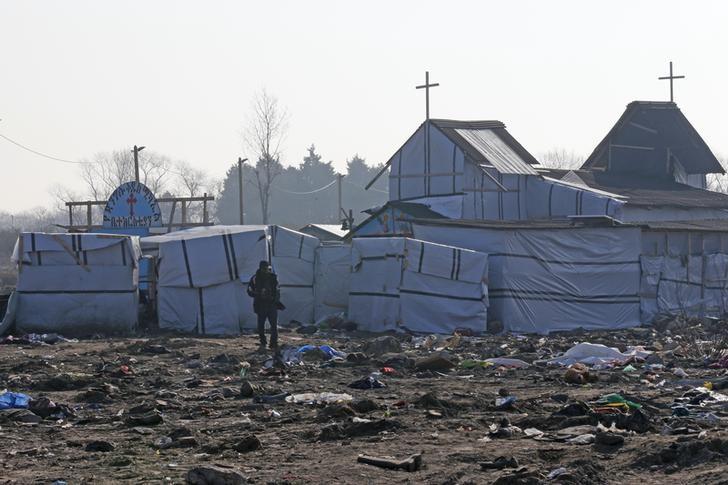Featured image: the church at the “Jungle” refugee camp, now under demolition, in Calais: REUTERS/Pascal Rossignol
As the refugee camp in Calais is bulldozed, concern for its children grows. The Guardian reported that up to 1,000 children remain at the camp, with few adults left to care for them. They are being housed in shipping containers as the rest of the structures are demolished.
In an open letter to the government, signed by leading rabbis and bishops, Lord Dubs (who was brought to the UK as a child refugee in 1938 on a Kindertransport train) described the scenes of chaos that have accompanied the camp closure.
“Charities such as Citizens UK, Save the Children and Help Refugees, report that as many as 50 unaccompanied children who had been unable to register their claims with camp authorities in the rush of the demolition, being driven off into the cold night as the ‘Jungle’ burned,” he wrote, criticising the government’s argument that a display of toughness was necessary to deter more young refugees from traveling to Calais in the hope of getting to the UK.
“The argument that such a tough approach was needed to prevent a pull factor is morally unacceptable. One does not leave a child playing in the road to deter other children from similar behaviour.”
The letter called on the government to restart the suspended process of transferring unaccompanied asylum-seeking children to the UK. Lord Dubs echoed earlier calls made by the French president, François Holland, for Britain to accept all of the remaining minors in the camp.
Reuters reports on one structure that remained intact amongst the rubble this weekend.
Dozens of young Ethiopian and Eritrean migrants gathered on Sunday at a makeshift Orthodox church in the Calais “Jungle” camp, one of the only places still standing in the area, to attend a last service before the demolition is completed. …
Calais resident Pascal Froehly, who works for Caritas France charity, said he would like to see the church survive the “Jungle” demolition.
“It has been built quite solidly … it’s an opportunity to recognize the knowledge and ingenuity of the refugees, among other things,” he said, adding it was “a kind of reminder of what happened here, of the joy and suffering”.

